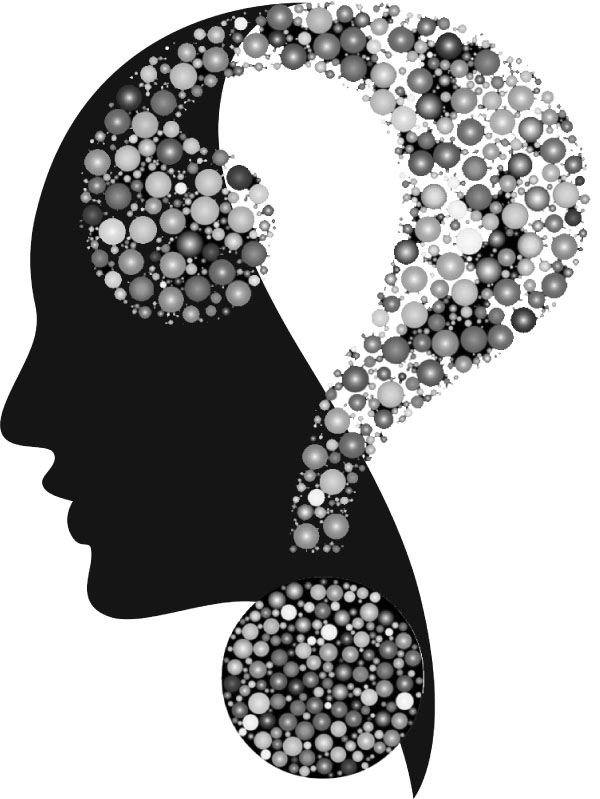Walking around with a set of specialized sunglasses over your eyes and fluffy gloves with rubber bands around your fingers looks strange, but serves a purpose. This is the method in which you can personally experience what life is like for someone with dementia.
Dr. Jennifer Stelter gives lectures on what it’s like “In Their Shoes,” as she did recently at Alden of Huntley where Stelter serves as operations director of clinical programs.

Hearing Stelter talk is comparable to one-stop shopping for learning about Alzheimer’s Disease and other dementias. She is a licensed clinical psychologist, CPI certified instructor—associate, and certified as a dementia practitioner, Alzheimer’s and dementia disease care trainer, clinical trauma professional, and member of the Alden management service.
Dr. Stelter knows very well the debilitating nature of Alzheimer’s Disease and other dementias, filled with confusion, frustration, memory failure for people and places, and high anxiety and fear. But she also knows that family, friends, and caregivers must understand the world in which a person with dementia lives. Attend one of Dr. Stelter’s lectures and you are bound to be an active participant in her presentation.
“I go through a series of symptoms that are common for those with Alzheimer’s Disease. One of those is a degeneration of the eyesight and so often individuals with Alzheimer’s will experience macular degeneration. They might also experience peripheral vision issues and depth perception problems. The sunglasses mimic these conditions,” Stelter said. Stelter watches for reactions from the volunteers testing their new sensations or lack of sensations and “they are blown out of the water.”
Another symptom that people with Alzheimer’s Disease experience are hearing problems. For the presentation, volunteers may receive a set of headphones with an iPod attachment that will mimic a very noisy environment, but they won’t be able to make out what people are saying.
“People with dementia have difficulty with a lot of different sounds around them and so it’s almost as though there’s a lot of garble going on,” Stelter said.
A loss of smell is a symptom that has been shown more recently. “Not everyone with Alzheimer’s Disease experiences this, but it is something that has been shown in the research in the last few years,” she said, “We give fancy nose plugs to our attendees to experience what it is like to not be able to smell.”
Stelter covered vision, hearing, touch, and smell in her explanation of what it’s like In Their Shoes. How about taste as something affecting people with Alzheimer’s Disease and dementias?
“Actually taste buds do change as the disease progresses. Often times especially toward the late stages, people with Alzheimer’s Disease love sweet food. So they love their cakes and cookies, ice cream and candy. They may not have been a big sweets person before,” she said.
The more we know as family members and caregivers the better we can understand a world that has shocked us and led to our own confusion as to how we can spend quality time with our loved ones and make sure they are in good hands.
Stelter recommends people take their loved one to see the doctor they’d been visiting in the past to assess for dementias and Alzheimer’s Disease.
“If the parent doesn’t want you there in the visit, contact the physician ahead of time and tell them your observations, what changes you’ve seen in mom or dad and what you see now. A good physician would thank you,” she said.
Dr. Stelter advises that as you navigate through a series of decisions, working with a professional that truly understands the disease is a big help.
“Make sure you are doing the research and find professionals that have credibility with Alzheimer’s,” said Stelter.
What you might look for to tell the physician is possibly your loved one is having difficulty with problem solving. He or she may have short-term memory loss, lose things more readily than before, forget things that may have just happened in conversations, and struggle with independent skills or daily living skills such as paying bills, planning events, and making appointments.
The next step for someone medically described as having Alzheimer’s or other dementias has to do with overcoming a hurdle.
“The ‘loved one’ may not be so willing to face a change in their life. The other hurdle is that an adult child may also have trouble with the change. I’ve been running the operation of memory care for nine years now and we have fully invested in a program that is holistic in providing alternative and non-pharmacological therapies to those with varying dementias. We focus on person-centered, individualized care related to meaningful sensory stimulation techniques to optimize on communication, intervention, and connections with our residents. Also, within our memory care facilities and programs, we are able to have individuals ‘age in place’ we call it. They are able to receive most services that they might need throughout their journey without really needing to move; that is what is important to us. Stability and routine are so important in the care for those with dementia,” Stetler said.
The Alden Network offers skilled rehab, long-term and assisted living, and independent accommodations and services. Alden specializes in senior care, but also provides specialty programs for those with memory care needs, developmental disabilities, and behavioral health concerns. At Alden Courts of Huntley and Estates of Huntley, the focus is on rehabilitation. Huntley Courts is more focused on memory care while at Huntley Estates, skilled rehab is offered. Check out www.TheAldenNetwork.com.




